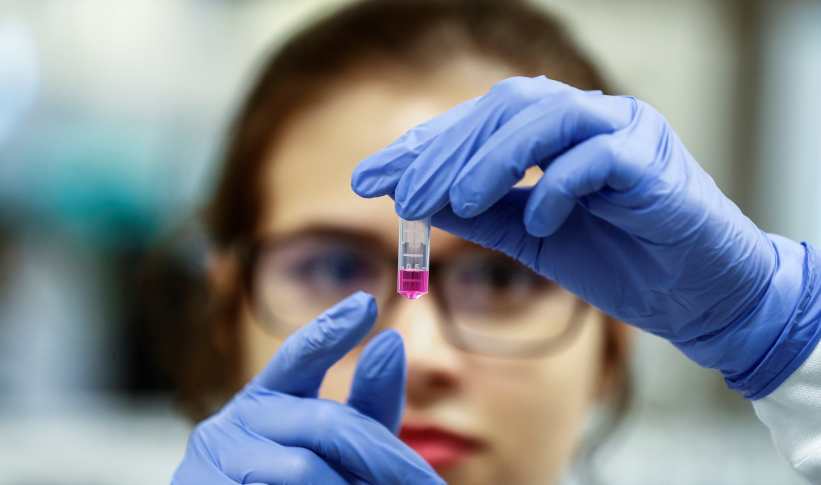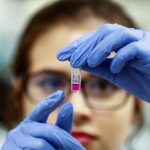Oxford University coronavirus (COVID-19) vaccine to begin phase II/III human trials. More than 10,000 people including children and older adults will participate

With more than 100 experimental vaccines against Covid-10 currently being developed worldwide, Oxford University researchers continue to make progress in various phases of its vaccine trial program. The first phase of the trial which began in April, involves 1,000 healthy adults aged 55 and under.
Today, the university announces it has begun recruiting for the next phase in human trials of a COVID-19 vaccine in human volunteers. The second phase trial will include 10,200 people, including children and older adults. People over 70s and five to 12-year-olds – will be enrolled in the study, to see the effects on their immune system. The adults in the second trial will receive one or two doses of either the new investigational ChAdOx1 nCoV-19 vaccine, which the U.S. NIH said protects protects monkeys against COVID-19 pneumonia. Researchers will later compare the number of infections in both groups.
Professor Andrew Pollard, head of the Oxford Vaccine Group, said:
‘The clinical studies are progressing very well and we are now initiating studies to evaluate how well the vaccine induces immune responses in older adults, and to test whether it can provide protection in the wider population. We are very grateful to the huge support of the trial volunteers in helping test whether this new vaccine could protect humans against the pandemic coronavirus.”
ChAdOx1 nCoV-19 vaccine was developed at the University of Oxford Jenner Institute. It uses a replication-deficient chimpanzee adenovirus to deliver a SARS-CoV-2 protein to induce a protective immune response. ChAdOx1 has been used to develop investigational vaccines against several pathogens, including a closely related coronavirus that causes Middle East respiratory syndrome (MERS). The scientists quickly adapted the platform to SARS-CoV-2 when the first cases of COVID-19 emerged. They showed that the vaccine rapidly induced immune responses against SARS-CoV-2 in mice and rhesus macaques.
As we reported about two weeks ago, after NIH researchers in Montana tested the vaccine using six rhesus macaque monkeys, they found that the monkeys that got the vaccine developed protective antibodies against the coronavirus.
“What happened after the testing is whats giving the doctors hope. When they exposed the animals to coronavirus, the monkeys that weren’t vaccinated developed pneumonia, a sign of COVID-19. But those that got the vaccine, and developed the protective antibodies, had no pneumonia and no virus in their lungs.”
In the meantime, the U.S. government announced yesterday it has committed $1.2 billion to production of Oxford Coronavirus vaccine. The Fed it is partnering with drugmaker AstraZeneca for at least 300 million doses of a coronavirus vaccine developed by the University of Oxford and committing up to $1.2 billion to the effort.
Below is a timeline of the trials.
The phase I trial in healthy adult volunteers began in April. More than 1,000 immunisations have been completed and follow-up is currently ongoing.
The next study will enrol up to 10,260 adults and children and will involve a number of partner institutions across the country.
The phase II part of the study involves expanding the age range of people the vaccine is assessed in, to include a small number of older adults and children:
• Aged 56-69
• Aged over 70
• Aged between 5-12 years
For these groups, researchers will be assessing the immune response to the vaccine in people of different ages, to find out if there is variation in how well the immune system responds in older people or children.
The phase III part of the study involves assessing how the vaccine works in a large number of people over the age of 18. This group will assess how well the vaccine works to prevent people from becoming infected and unwell with COVID-19.
Adult participants in both the Phase II and Phase III groups will be randomised to receive one or two doses of either the ChAdOx1 nCoV-19 vaccine or a licensed vaccine (MenACWY) that will be used as a ‘control’ for comparison.
ChAdOx1 nCoV-19 is made from a virus (ChAdOx1), which is a weakened version of a common cold virus (adenovirus) that causes infections in chimpanzees, that has been genetically changed so that it is impossible for it to replicate in humans.



